







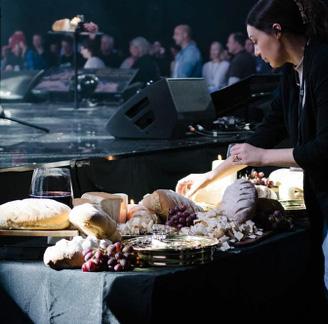
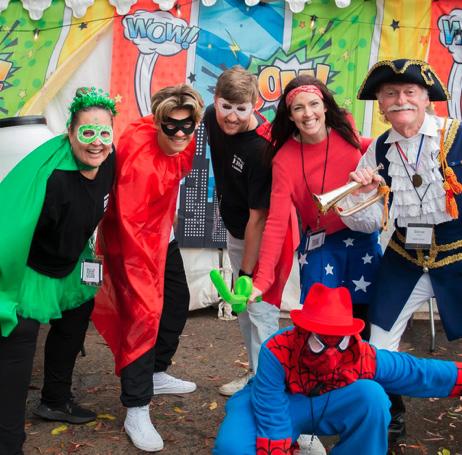
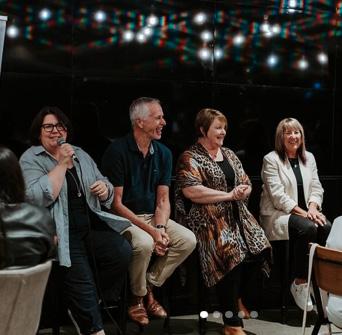
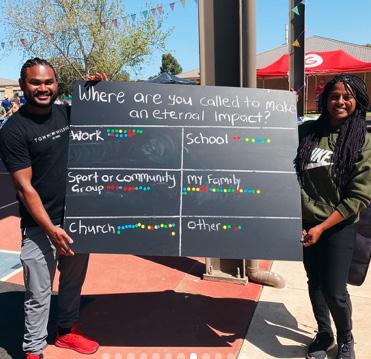
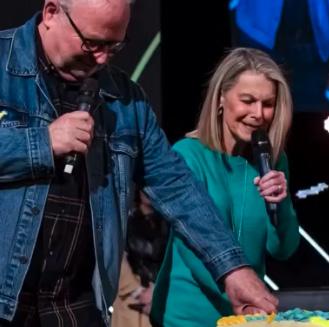

JULY - SEPTEMBER 2024
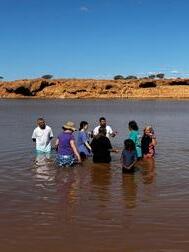
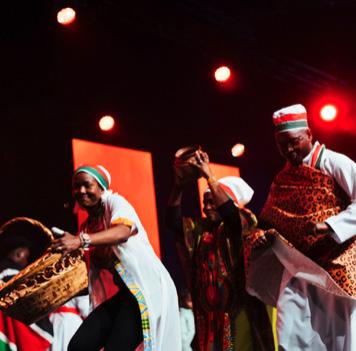

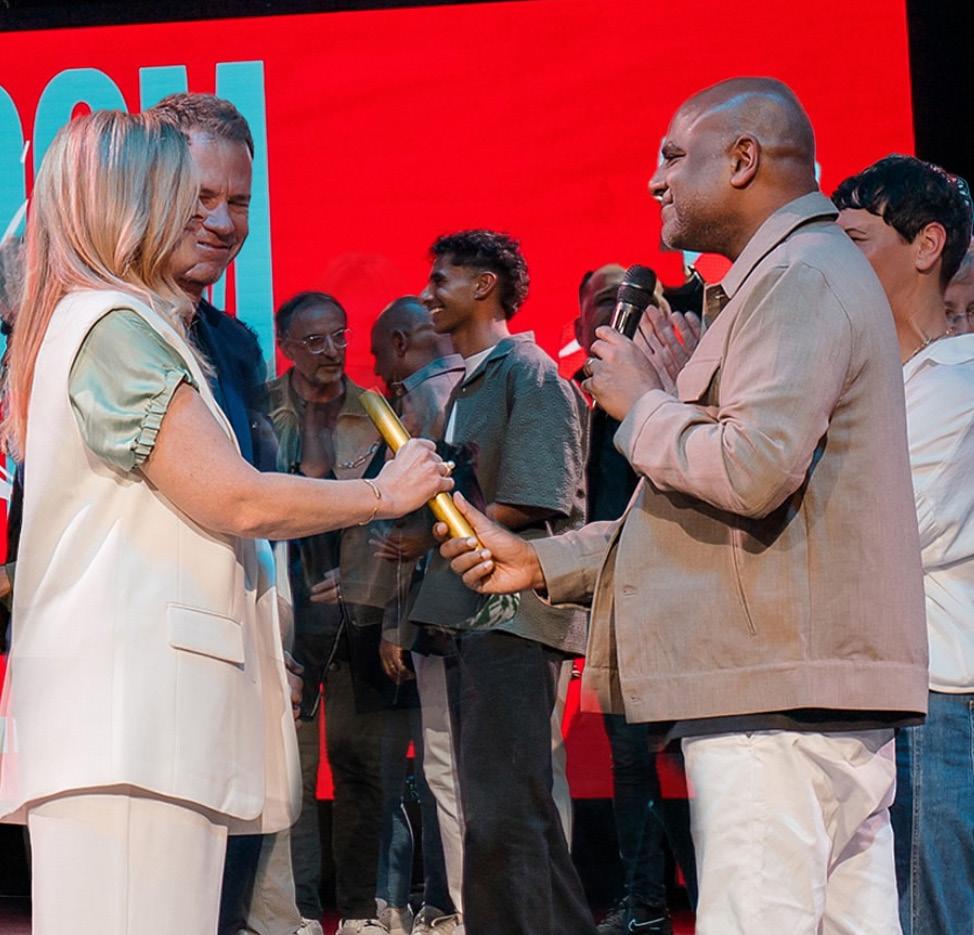
ACC congratulates Pastor Christie Blaikie who was elected as the new State President at the Western Australian State Conference in September. Christie and her husband Ewan are the senior pastors of Oasis Church in Perth.
At the passing of the baton, outgoing State President Joel Chelliah stated: 'Thank you to all who came out to celebrate our passing of the baton. It was such a special moment. To our new State President Christie and her new team, we honour you and are so excited about the future.'
Pastor Joel Chelliah has served as the ACC State President for Western Australia since 2012, bringing fresh vision, health and significant growth to the State. Joel continues to serve the Movement on the ACC National Executive team. The ACC honours and thanks Joel & Sharon and their family for their faithful leadership over the past 12 years.
Outgoing WA State Executive members Pastors Patti Hardy and Ken Fletcher were honoured and thanked for their service over the years on the WA Executive team.
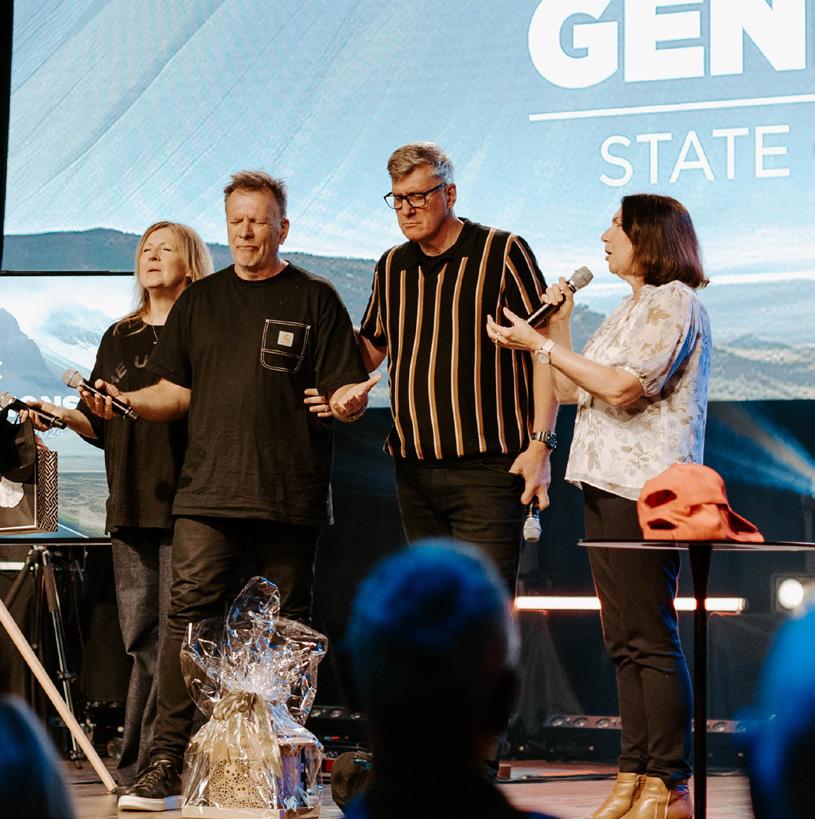
Congratulations to Pastor Mark Zschech, elected as the new State President of New South Wales + ACT at the State Conference in October. Mark and his wife Darlene are senior pastors of the multicampus Hope UC on the NSW Central Coast and internationally in the USA and India. Mark is also a member of the ACC National Executive. He is passionate about pastors and leaders being people of faith and worship, who put God at the centre of their lives, and he is focussed on supporting pastors and churches.
Outgoing NSW State President, Pastor Paul Bartlett was honoured for his leadership of the State for the past six years. The ACC extends their sincere and warmest appreciation to Paul & Annette Bartlett for tireless service in the State President role. Paul will continue as the National leader of ACC Community Engagement ministry.
Pastor Ken Fisher was also honoured for serving as the NSW State Secretary since 2018.
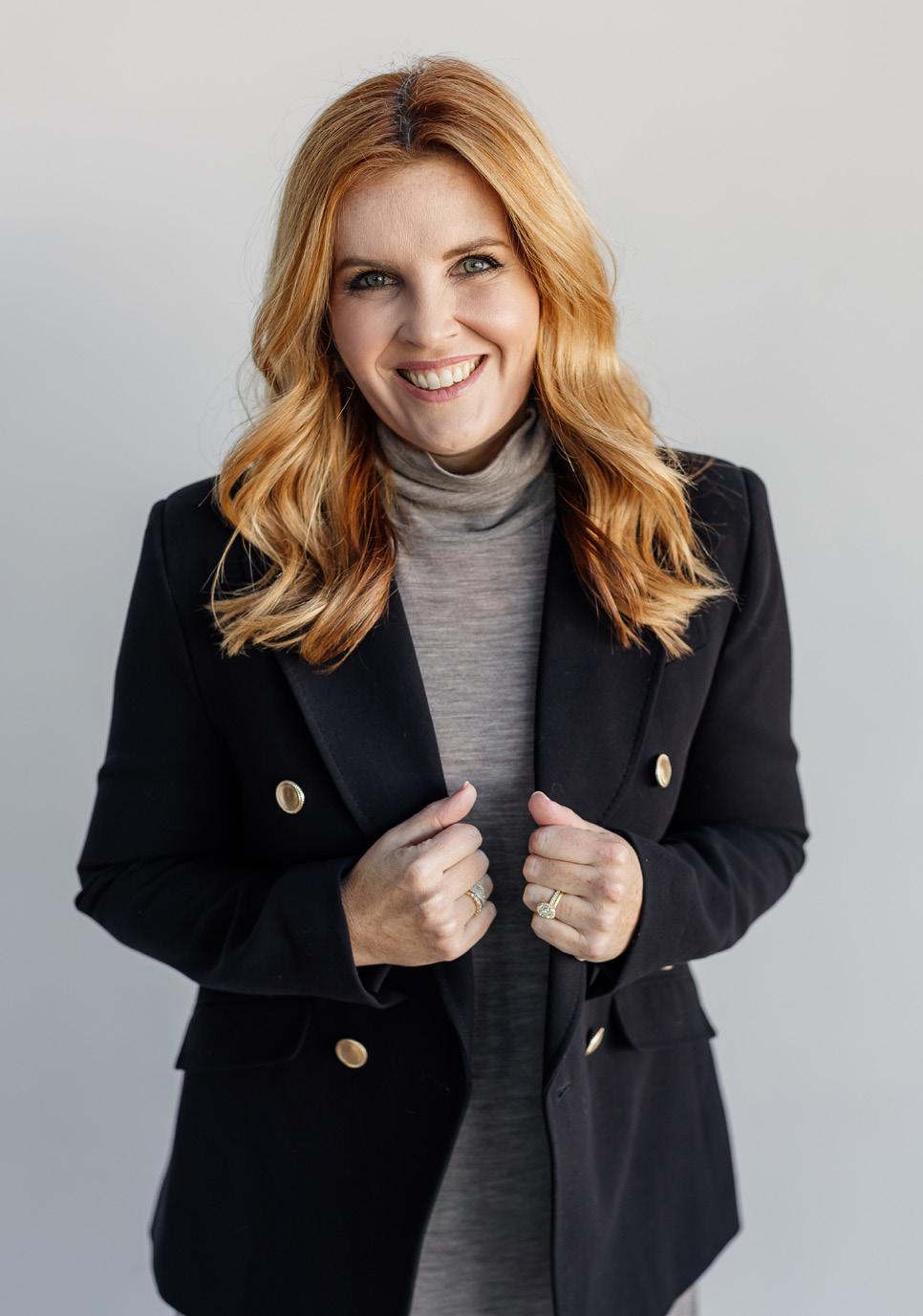
Name: Christie Blaikie
Church: Oasis Church, Perth WA
Family: Married to Ewen for 23 years, with 4 children: Amelia, Jack, Eliza and Anna. 3 dogs: 2 golden retrievers x labs named Daisy and Sage; and 1 chihuahua named Bill.
When I was a child, I wanted to be … a veterinarian or a primary school teacher. I married the vet and became a primary school teacher.
I first knew God was real was … probably from when I was quite young. We went to an Anglican Church when I was growing up for a few years. My Aunty and Uncle were charismatic Anglican pastors and they would tell me great supernatural stories. I had a radical encounter when I was 19 and that changed my life forever.
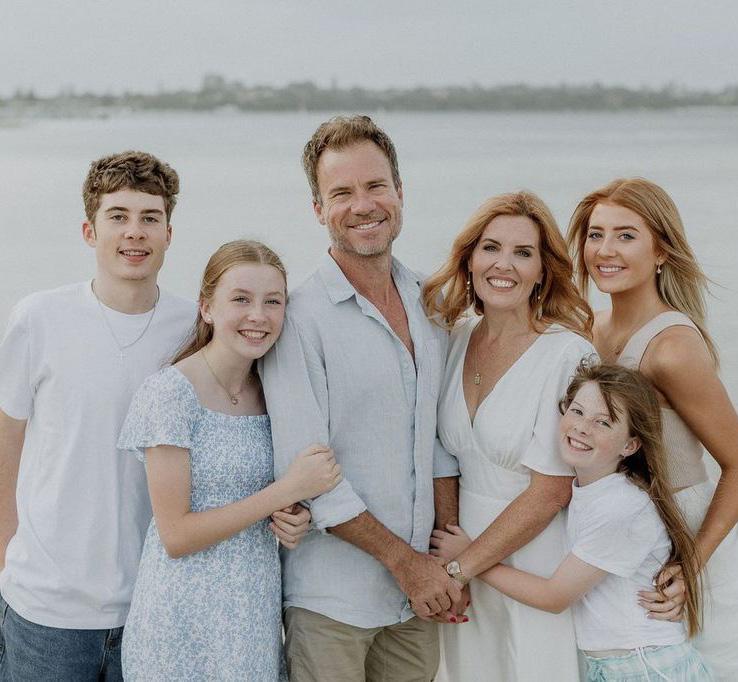
What makes me laugh out loud is … I laugh out loud at just about everything. Joel Chelliah, Ted Lasso, my dad. All hilarious.
The hardest thing I have ever done is … Planting a church is probably the biggest thing we’ve ever done, but we’ve also had 4 kids, renovated and built lots of houses, bought and started businesses so we aren’t afraid of hard things!
My life’s passion is … The Holy Spirit, my family, the local church.
My favourite way to relax … When the sun is up and the wind is down, getting on our boat and cruising over to Rottnest Island on Fridays for a swim and lunch
What makes m.e really angry is … Anything that hurts children
My favourite food is … A good scotch fillet with pepper sauce
My next big challenge is… Helping my kids transition to adulthood, leading ACCWA, planting more churches and accruing church properties.
The scripture that keep me on track is …. I have different scriptures that speak to me in different seasons. At the moment, I love Romans 4:21being fully persuaded that God had power to do what he had promised.
What I love to preach about most is …. The Holy Spirit, the gift of healing, knowing our authority in Christ.
Thank you to all those who are serving our pastors and churches in the next season of State leadership

State President: Matt Sharples
Vice President: David Morse
State Secretary: Laura Bain
Executive: Peter Shurley
Craig Guntrip
Secretary/Treasurer: Mark Bates (ACC Vic)
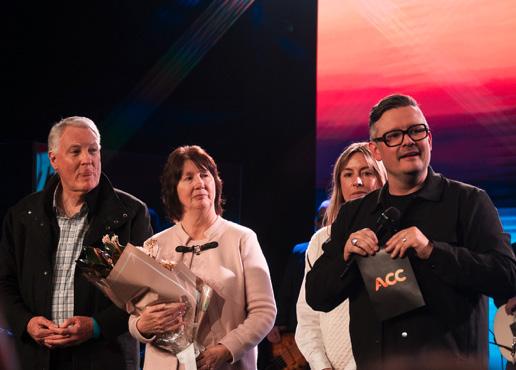
State President: David Hall
Vice President: Rob Santostefano
Secretary/Treasurer: John Griffiths
Executive: Janine Donato
Josh Greenwood
Sam Long
Ian Zerna

State President: Christie Blaikie
Vice President: Phil Ayres
Secretary/Treasurer: Grahame Barlow
Executive: Gareth Forsdike
Peter Hammer
Julian Kirtisingham
Nate Phor

State President: Ben Naitoko
Vice President: Craig Tomkinson
Secretary: Chris Mulhare
Treasurer: Lee Dallman
Executive: Dustan Bell
Mark Elmendorp
Deb Van Bennekom

State President: Matt Heins
Vice President: John Spinella
Secretary/Treasurer: Mark Bates
Executive: Phil Linden
Christina Kanagasabai
Graham Shand
Phil Shand
Katrina Yassi

State President: Mark Zschech
Vice President: Darren Bonnell
Secretary/Treasurer: Ben Sattler
Executive: Louise Antonius
Caleb Dwyer
Stephen Lott
Roz Zaia
Youth Alive has had the same mandate since its inception: To reach every young person in Australia with the gospel message of Jesus Christ. We are continuing to build on this pattern that God gave us over four decades ago – presenting the Good News at various events and outreaches throughout the country.
In 2024, each State has been busy at grass root level, with local events through to leadership training days. Our larger scale State outreach events have seen incredible fruit, with high school tours culminating in major outreach rallies in Victoria, South Australia, Western Australia, Queensland and Tasmania (NSW is still to happen in November).
Collectively, almost 20,000 young people have gathered, with 3,500 decisions for Jesus Christ. Along with our partnership with Alpha Youth, many of these young people have been connected with local churches and youth ministries in the form of ‘After Parties’ where they can continue their faith journey.
Keep praying for Youth Alive to continue to see young people's lives changed as we plan and prepare for 2025.
– Cam and Renee Bennett, YA National leaders


YOUTH ALIVE SOUTH AUSTRALIA
State leader: Seth Behn
Stadium 24
Attendance: 2,643
Salvations: 750+ (includes tour of 10 schools interacting with 7,000 students + decisions at Stadium)

YOUTH ALIVE TASMANIA
State leader: Sam Cogger
Main Event 24
Attendance: 848
Salvations: 123


YOUTH ALIVE WESTERN AUSTRALIA
State leader: Dan Sheikh
Main Event
Attendance: 4,000+
Churches involved: 70+:

YOUTH ALIVE VICTORIA
State leader: Dave Edgar
Main Event
Attendance: 5,352
Salvations: 1,100
Highlights: Main Event sold-out in 7 hours; young people giving lives to Jesus, and 800 bibles given out.
YOUTH ALIVE QUEENSLAND
State leader: Isaiah Simmons
Attendance: 5,582
Salvations: 709
Hundreds of decisions for Jesus, bigger and better rides, and the live recording of Youth Alive Music.

YOUTH ALIVE NSW
State leader: Matt Wilesmith
All Of Us Event 16 November 2024


The final week of September in Brisbane was wild. What God did in those days will spread all over Australia. This flame rests on us! This event has only been a starting point for generations to come.
Throughout the duration of Awakening Australia, tens of thousands came through the gates of the Brisbane RNA Showgrounds. Many believers were equipped and thousands participated in street outreach all week long, resulting in over 1,000 documented decisions for Christ both on the streets and in the stadium.
Many miracles happened, especially on the Saturday evening, with multiple reports of deaf ears opening, blind eyes seeing for the first time, scoliosis healed and other amazing miracles and healings.
On the streets, a wheelchair-bound man who hadn’t walked in over 10 years, received prayer. The power of God came into his legs and he took his first steps unassisted. This was caught on film and went viral.
The national newspaper wrote a positive summary on the city-wide event. Testimonies are continuing to pour in fas people share what God did for them in Brisbane, and continues to do as they step out in boldness wherever they go.
The Australian Church is burning, shining examples for the nation of Australia. Free from the fear of man. Fully given to Him. Revival ready.
Q: Can you share the heart and vision of Awakening Australia?
DANIEL: In 2017, Ben Fitzgerald and I began to pursue a vision that God placed in our hearts for Australia: that the wider national church would unite to demonstrate the Gospel.
We embarked on this journey by connecting with church leaders nationwide, initiating a daily prayer movement and training thousands of believers in evangelism in the lead up to the very first Awakening Australia in 2018. The Lord drew over 20,000 people a day to Marvel Stadium in Melbourne. The result was over 1,000 documented decisions to follow Jesus within the stadium alone. Over the past two years, God has continued to speak to us, and this year Awakening Australia 2024 took place in Brisbane from 26-29 September in the same venue that Billy Graham led a rally in 1959.
Q: What ignites a spiritual awakening?
DANIEL: Revival often begins with prayer, so when the broader Church gathers for collective prayer and worship, it creates a powerful spiritual atmosphere where God can move in extraordinary ways. United prayer can break spiritual strongholds and usher in God's presence on a national scale.
Coming together like this in a city helps to break down denominational, racial, and cultural barriers that can hinder the spread of the gospel.
This collective stand for truth can spark a revival by bringing clarity and hope to a nation in spiritual and moral crisis.
Q: What is the impact of coming together in unity in one place?
DANIEL: A unified church is such a powerful witness to the world. When the Christian church comes together across denominations, it reflects the oneness that Jesus prayed for in John 17:21.

As believers from all church denominations gathered in masses in Brisbane, we were literally answering the prayer of Jesus.
This unity can ignite a spiritual awakening, as it demonstrates the love of Christ and draws people to Him. Gathering on a massive scale provides encouragement and spiritual strength to believers.
Q: Tell us more about the bigger picture of Awakening Australia.
Awakening Australia is more than just an event; it's a yearlong commitment to spreading the Gospel in our nation, training believers, and calling each of us to rise up in prayer for Australia to see Jesus.
Christ for all Nations linked arms with Awakening Australia and assisted with three days of evangelism training at the Outreach Intensive. This equipped leaders with a passion for souls to be trained in effective evangelism. They then joined the Awakening Australia Flood Outreach team who took to the streets each afternoon.
At the stadium rallies, speakers like Todd White, John Bevere and others shared powerful messages that resulted in souls saved at altar calls and baptisms.
Witnessing the broader body of Christ worshipping and seeking God together can renew faith, inspire greater commitment, and fuel the personal revival that spreads to communities and beyond. And this is certainly what we have been seeing take place throughout Europe in previous campaigns.
It's not the time to sit back and hope for a move of God; it's time to act and move with God across the nation.
Daniel Hagen is the senior pastor of Fire Church with his wife Chelsea, and Associate Director of Awakening Australia.


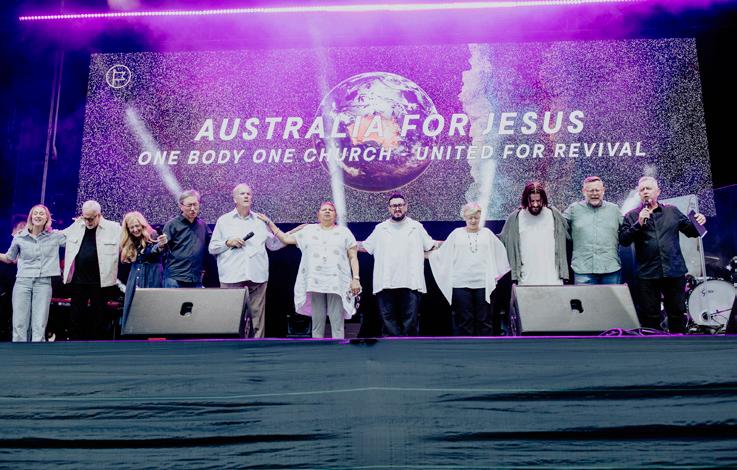
Fifteen years ago, Mark Kinbacher launched into full-time evangelistic ministry in Papua New Guinea and he’s never been more excited about the work than he is now.
'We believe Papua New Guinea is now in the very early stages of a national revival,' he explains. 'We are committed to that.'
With the support of his wife Carol, and their four children, Mark traverses the hard-toreach parts of the mountainous nation, relying on long-built networks to reach more people with the gospel. Some days he’s sharing to 10 or 20 people in a tiny, rural village. Other times he’s running weeks-long crusades in regional centres, attracting thousands.
'We have seen tremendous movements of God,' Mark says. 'We have seen thousands of people across these regions make decisions or recommitments, and churches being revived and restored to health and wholeness again.'
Healings & Miracles
Mark has also witnessed God perform many miracles and healings, including restoring life to a four-year-old girl who suddenly died one morning while walking along a road with her mother.
'We had just finished a crusade and the pastor came to me and asked us to pray. So we began to pray for this little child. I asked the pastor to get a guitar, and the pastor and his wife began to worship God while I and my associate continued to pray.
'It was probably another hour or so that we continued to contend for the life of that child; then we saw that child completely restored to life.'
Mark admits the work he does isn’t always easy – as it requires regular travel into geographically challenging areas, and extended time away from his family. But he sees God’s grace at work every day through the doors that open to him throughout the country and the spiritual growth that continues to happen in people, churches and communities after he leaves.
Tremendous Legacy in PNG
Mark feels privileged to 'stand on the shoulders' of the many missionaries who ministered there in the 1950s, 60s and 70s; people he says left a tremendous legacy in the hearts and lives of Papua New Guinea’s remote people groups.
While the Church in Papua New Guinea has been through a dry and difficult season in recent years, Mark says he is now witnessing the country turn back to God.
'We believe that Papua New Guinea will become a revived and restored Christian nation again,' he says. 'We believe that God’s presence will be so significant in the nation of Papua New Guinea; that it will become a sending resource of people committed to go into the nations of the world.'
Mark strongly encourages Australian churches to reengage with the ongoing work of God in Papua New Guinea: 'Our job is not done yet!'
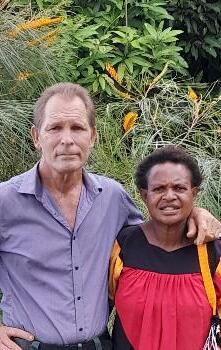
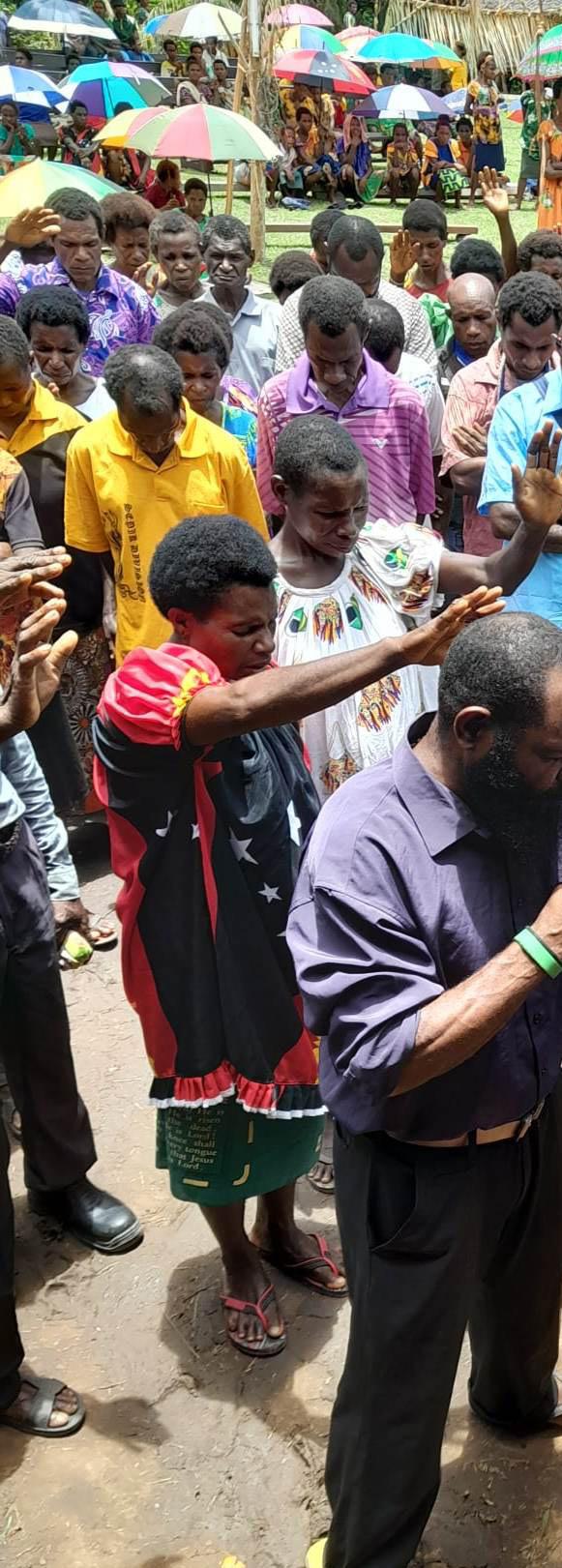
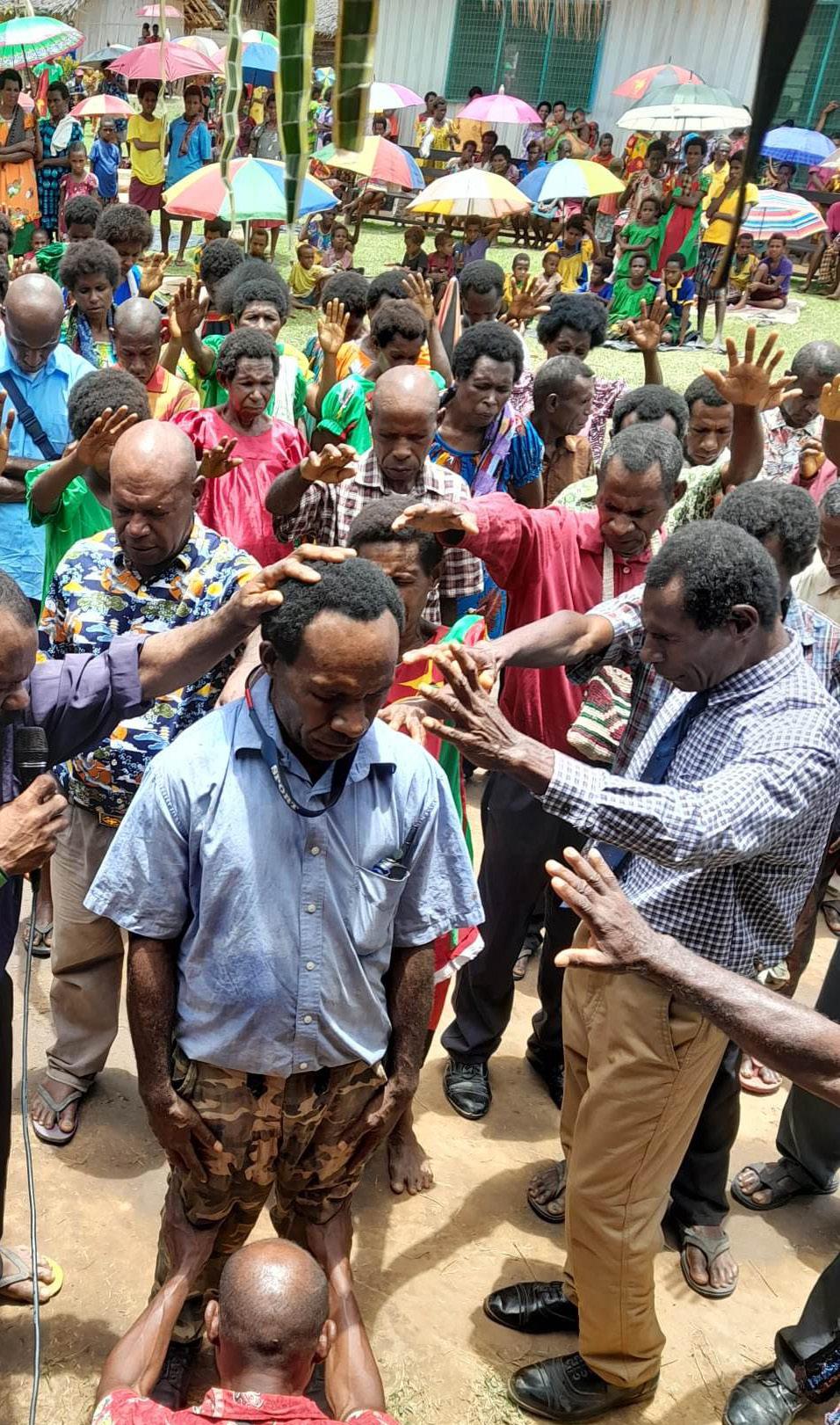
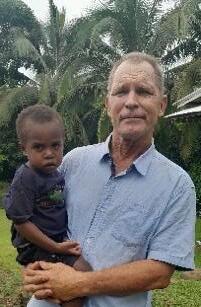
ACCI International Conference
It’s always a privilege to host ACCI’s International Conference (formerly PanAsia). Bringing together Australian pastors and field workers in the same room every two years, you get a sense of what’s on people’s hearts and what the future of missions looks like.
This year we really saw the emergence of a new generation. A highlight for me was watching our interns share with such passion and intelligence – showing they are clearly forces to be reckoned with as we move into the future. It was also incredible to hear from many other young field workers and to see the altar call filled predominantly by youth.
There was a strong feeling of community between all who attended, with pastors and field workers taking every opportunity to get to know each other better. Ultimately, I believe people left with a greater excitement and a deeper passion for global missions, along with the sense that we are all in this together.
– John Hunt, ACCI Director
Your church can help create lasting change for children and their families around the world this Christmas. Donations to the Christmas Kids Appeal will support child-focused programs and projects in all the places we work.
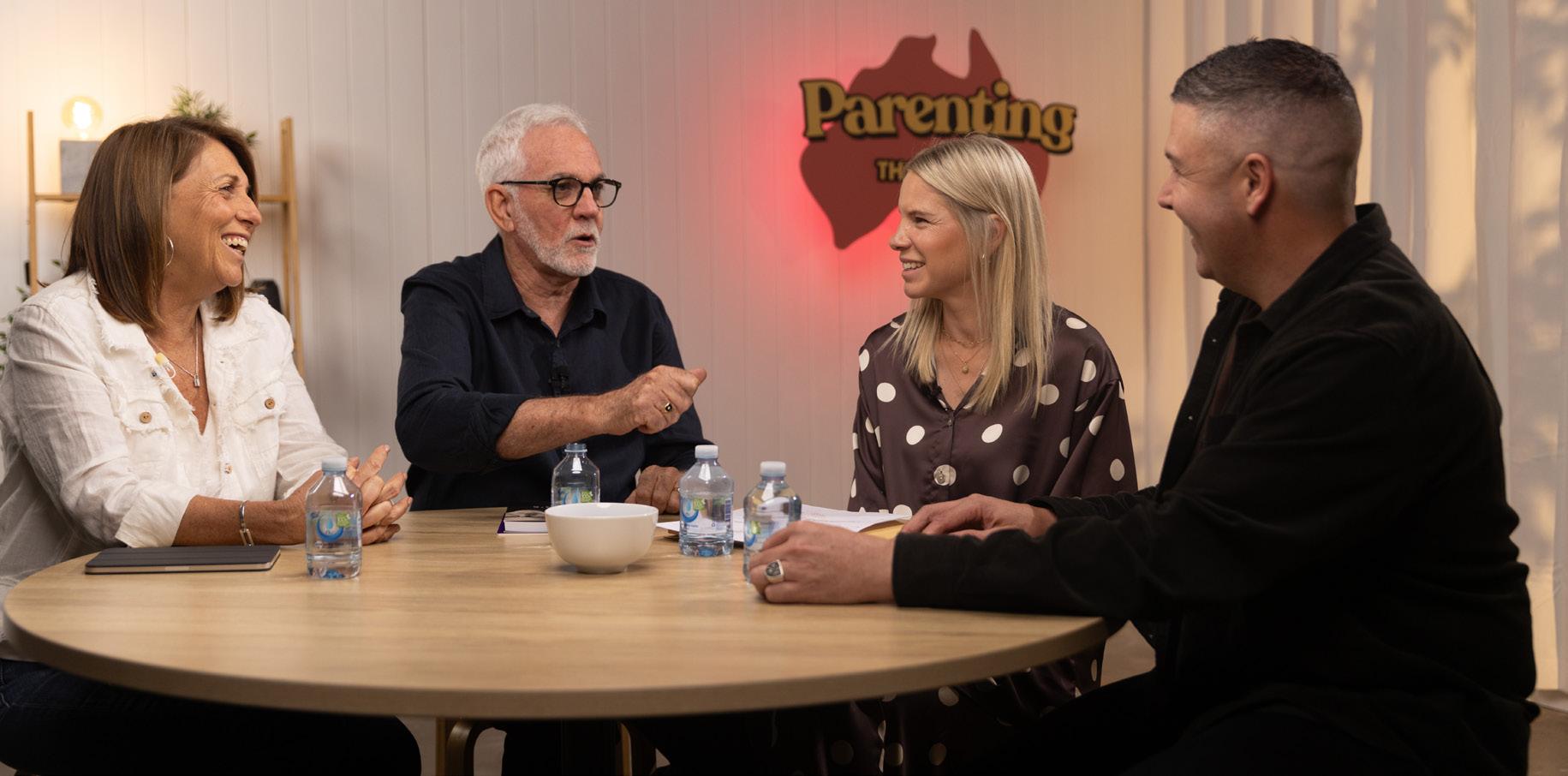
ACC, in conjunction with ACCKids, is excited about the launch the Parenting Thoughts YouTube Channel, with the first episode going live on Monday 28 October 2024.
This platform aims to provide practical support, valuable insights, conversations and resources for parents navigating faith, family and modern life.
The first episode features atonal President Wayne and Lyn Alcorn, alongside Andy and Christie Kirk, who dive into key topics on family, faith, and parenting. Wayne and Lyn, both experienced leaders and grandparents, share their insights on how a healthy marriage sets a powerful example of love and respect for children. They explore the importance of faith in parenting, even as modern families navigate a world where happiness and success often take priority.
Throughout the interview, discussions include:
• The role of marriage in modeling love and respect for children amidst a busy family life.
• Why faith should be a focus in parenting, even as societal values often place it lower on the list.
• How to nurture a child’s unique gifts while shaping their character and faith in today’s world.
• The importance of emotion coaching for a child’s emotional and faith development.
ACC churches and congregations are invited to subscribe to the Parenting Thoughts channel for this first episode and future content will include interviews, sermons, and more. Each month, fresh resources will be released to help guide families in the comfort of the their own homes or in small groups for deeper discussions.
SUBSCRIBE to Parenting Thoughts Channel


We are living in an increasingly digital world and the line between personal life and work is becoming blurred, and this can be particularly so with our church staff and volunteers who work on weekends. In response to this increasingly blurred line, the Australian government introduced the ‘right to disconnect laws’ which have begun from 26 August 2024.
What are the ‘right to disconnect’ laws?
The ‘right to disconnect laws’ were introduced in the Fair Work Act 2009 (Cth) and prevent employers expecting their employees to read, respond, or answer phone calls outside of their regular working hours. The laws are intended to protect employees work-life balance and mental health by ensuring they can disengage from work without fear of consequences. The right to disconnect laws extend to contact from third parties outside of the employee's working hours that relates to work matters.
This does not mean that the employer is prevented from contacting the employee where it is reasonable. For example, sending an email to the employee outside the scheduled work hours. However, the employer should not expect a reply.

What does this mean for ACC Church Staff and Volunteers?
ACC is thankful to all the volunteers and church staff who often work weekend/after hours on events. With the new changes, you are probably wondering what does this mean for all our dedicated church staff and volunteers who offer their time to contribute and assist churches in their services over the weekend.
Generally, the agreed regular working hours between the church and church staff will include weekend work and include a separate day off during the week to ensure they receive a ‘weekend’.
How can Churches prepare for the new legislation?
Churches should begin to prepare themselves by providing training and reviewing contracts, policies, and internal procedures to ensure they are navigating this new legal right effectively. To align with an employee's right to disconnect, the Church should:
• review employment contracts and position descriptions, specifically clauses pertaining to salary, remuneration and duties, in order to ascertain if employees are remunerated with an expectation to be contactable outside of normal working hours;
• prepare or review policies around the use of work technology outside of agreed working hours;
• monitor employees' work activity outside of agreed working hours;
• encourage managers to respect employees' boundaries;
• provide training to managers to ensure they are aware of the changes and do not treat employees adversely if they reasonably refuse after-hours contact;
• train employees about the new right and what their employer is doing about it;
• organise feedback mechanisms for employees who feel the need to work outside of agreed working hours;
• encourage all employees to schedule any emails and tasks to be delivered during agreed working hours.
Tim Whincop and Francisca Meyer are members of the legal team at Vocare Law. www.vocarelaw.com.au
By Laine Willis
I recently did a quick search through the Scripture looking for references using the words; extend, enlarge, grow and expand and was not surprised to find a myriad of encouraging verses that have been inspirational through ministry life.
In contrast, as the years have passed, the prospect of 'smaller' and 'decrease' have become more the consideration when it comes to our practical situation, particularly when in relation to our home and living arrangements.
The topic of 'downsizing' has been discussed in many of the conversations I have had amongst our Emeritus friends, including how to negotiate our final departure to our eternal home.
These past six months has highlighted these important issues for us, as we made the move to downsize to a Retirement Village with the prospect of ongoing Residential Care on site.
With this as the backdrop, I would like to offer some of our own personal insights into this somewhat reluctant, transition. The 'reluctance' is meant in terms of the disturbance to what we had become comfortable with and the uncertainty of taking the faith leap into the final stage of our residential arrangements this side of Glory. Some of you may have travelled this road before us but for those who haven’t, I trust these pointers will be helpful. Here are some of those insights:
1. Start the conversation earlier rather than later.
Because of the gravity of the choice to downsize, there needs to be prolonged discussions with your spouse as well as family members. Each must be a part of the journey with a clear understanding of the outcome you are expecting, how the family finances could be affected and the lifestyle changes will impact on your own health and wellbeing.
2. Be clear about the kind of downsizing you are envisaging. There are many options available to facilitate the move including, apartments, lifestyle villages with all the extras, (gyms, theatre rooms, spas, pools, tennis courts etc.) or simple retirement villages. A key aspect in the village choice also is, who operates the facilities –church or secular company. This will determine the level of sympathetic support you receive during your residency.
3. Consider the cost. At this level of discussion, it is advantageous to consider the initial cost outlay: ongoing costs of Body Corporate fees, maintenance, decreasing mobility and medical emergency response when needed.
4. Obtain legal and financial advice.
Getting professional advice is a given in what is potentially one of the most important life choices we will make. When considering 'village' choices especially, be sure you are aware how the contract works when
it comes to exit fees, capital gain/ loss, refurbishment costs etc.
5. Watch for God-confirming moments.
Once you feel confident of the path you are planning to take, watch for those moments and incidents where God confirms your steps. Making our transition was confirmed by the timing of the availability of the exact unit suited to our needs, the miraculous sale of our home at a higher than expected price, the ease of disposal of unnecessary furniture and the smooth settlement.
6. Relax and remain content. As much as there are elements of discomfort and loss at the change of pace in everyday life, it is important to embrace the new season in God with contentment allowing His peace to settle any sense of regret. This gives way to new possibilities to serve the Lord given the obvious release from tasks and responsibilities associated with maintaining your previous dwelling. Things are certainly different. Life is much slower. Heads are much clearer and so it is our joy to be thankful to God for what He alone has provided. (Heb.13:5)
The last word: Don’t wait till it’s too late!
Laine Willis and his wife Roslyn are the ACC National Emeritus Coordinators.
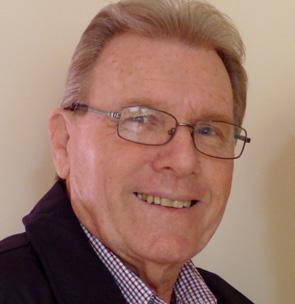
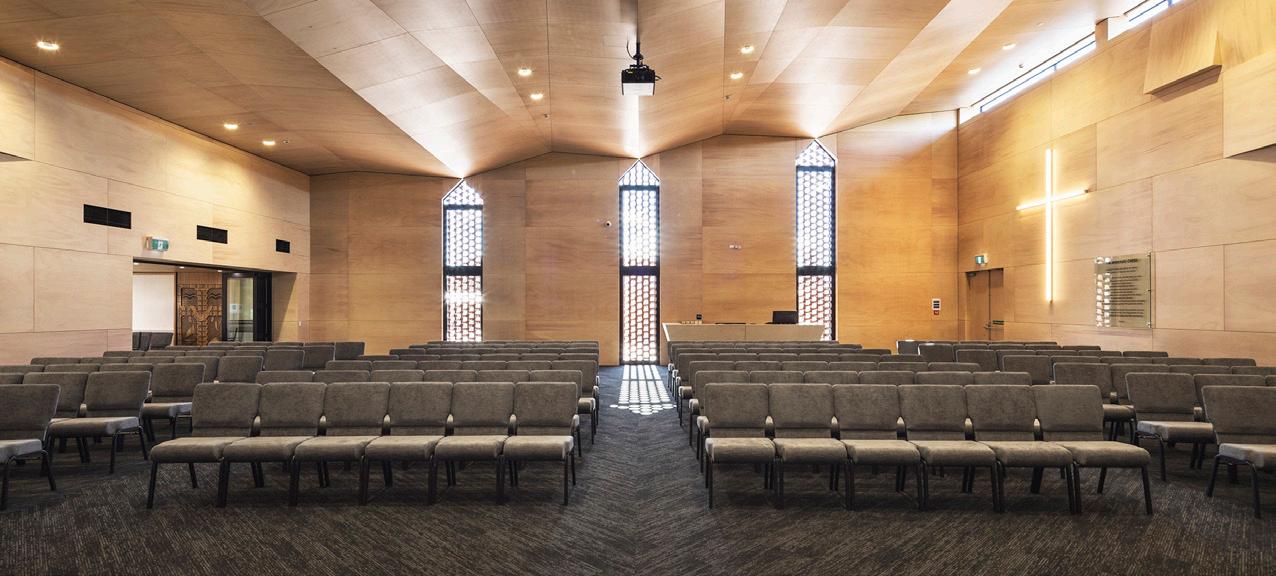

Whether a heartfelt talk between friends, or a spiritual dialogue within your congregation;
The most important conversations take place sitting down.


Seating is crucial in completing a worship space—it fosters connection, turning it into a true community hub where your congregation can gather comfortably to share, listen, and grow together.
As a social enterprise rooted in Christian ministry, Alloyfold understands what is needed to create an inspiring environment for your congregation.
We customise our seats to fit seamlessly into your space, offering various upholstery and configuration options tailored to your needs. Whether your style is traditional or modern, our versatile range will enhance and compliment your interior while providing vital comfort and support.
Alloyfold is an Australian registered social enterprise. 100% of our profits are invested into our ministry. Learn more about the charitable work we do at pathway.org.nz alloyfold.com.au | sales@alloyfold.com | 1 800 287 025 Contact us:
Whether you are updating or building new, we will help you find the best seating solution for your church.
Start by viewing our range on our website by clicking below:



By Joel Chelliah
When Solomon first became king, he recognised that he was young and inexperienced, so he asked the Lord for wisdom. Solomon’s humble heart drew the grace and favour of God across his life. From that moment on, the Lord began to bless Solomon’s life. He multiplied his territory, his wealth, his wisdom and his fame.
‘God resists the proud, but gives grace to the humble.’ (James 4:6)
We all need to be mindful of the progression from being humble to becoming proud:
Humility draws grace – Grace brings increase – Increase (if you lose sight of its source) stirs up pride – Pride leads to a fall.
Pride is very subtle as it creeps into our hearts without us knowing. As every Christian leader knows, pride comes before a fall. What is harder to ascertain is, ‘What does pride look like in my life?’
As I’ve been contemplating this question, I’ve been discovering what pride looks like in my life. It is worth doing a regular heart check to see if any of the following six signs are creeping into your own life.
1. You have a problem with pride when… you no longer place yourself under authority.
The prophet Nathan kept King David accountable, but Solomon didn’t come under anybody’s authority. He was successful and powerful from the beginning of his reign, but success is not a replacement for coming under authority. In fact, continued success requires it.
2. You have a problem with pride when… you are no longer teachable.
Prideful leaders are the expert in their own lives. They see themselves as the smartest person in the room and often disqualify others from being able to speak into their lives. Prideful leaders don’t value advisors.
3. You have a problem with pride when…you are no longer grateful.
Solomon’s leadership journey began with a heart of gratitude. He realised that he didn’t deserve all that was given to him – it was the kindness of the Lord. The Bible records his early journey as being full of praise, with many sacrifices to the Lord. That dried up in his older years.
Prideful leaders replace gratitude with entitlement.
4. You have a problem with pride when… you are no longer prayerful.
The early part of Solomon’s story is laced with God encounters. The intimacy in his relationship with God was so precious.
I remember my first day on the job as a pastor. I prayed so much knowing that I couldn’t do what I had to do

without Him. As the years roll on, and you get a few successes under your belt, it is easy to rely on your own strength and prayer can dry up. When prayer slows down, revelation and conviction also reduce to a trickle.
5. You have a problem with pride when…you are always the leader or the critic.
A prideful person will only champion things they are leading. If they aren’t speaking or leading, they are usually too busy to attend and support others. They expect others to support them but will not reciprocate the service, because they see what they are doing as more important than what others are doing.
If they can’t lead, then they assume the role of a critic: ‘If I did it, I would have changed this, and this and that.’ They find it hard to simply celebrate the victories and successes of others.
6. You have a problem with pride when…you believe that the word of God doesn’t apply to you.
Solomon was the wisest man in the world. His father had taught him God’s Word from a little boy, yet somewhere along the way, Solomon fell into deception thinking that God’s word didn’t fully apply to him. A prideful person thinks they are above God’s laws and statutes; and that they can sow anything and not reap consequences.
When you look at Solomon’s life, it’s heartbreaking to see how he ended his race. He started so well. He saw so many victories and successes but in the end, God is looking for faithfulness.
Joel Chelliah is a member of the ACC National Executive. Joel and his wife Sharon are the senior pastors of Centrepoint Church in Perth.

most churches only build a new building or upgrade once every 10 or 15 years... we do it every week!
Whether you’re about to embark on a new project or are already underway and need some help, our team can help you design, install and commission your dream worship space.
We want to know your vision and serve your church. From 50 seats to 5000 and beyond, we’re here to deal with all the details, so you can focus on advancing the Gospel, reaching your community, and changing lives.
Great worship services and spaces equipped with hassle-free audio, video, and lighting technology... that’s what it’s all about!


audio. video. lighting.

info@ffp.com.au (02) 4954 4771 ffp.com.au






Take a closer look into the shadows of every church community and you'll often find many who don't draw attention to themselves as they silently struggle with life's challenges. Their cries to the Lord may be unseen by human eyes, yet they are seen and heard by El Roi – The God Who Sees Me
Perhaps we the Church can look deeper into those shadowy corners and meet them too: the awkward teens, the lonely widows, the single parents, those with physical disabilities, the victims of family domestic violence, and many others who face battles we may not understand.
Let's allow the Holy Spirit to direct our eyes from the platform and shine His light on those He wants us to see - to reach into the shadows to those unnoticed and may possibly even ignored. We can bring the value, dignity and love of El Roi when we reach out to them with open arms.


By John Hunt
The story in Acts 8:26-40 is a seminal moment that highlights how the light of the Gospel first made its way to Africa. It’s a powerful narrative, showing how divine intervention, human interaction, and understanding come together to spread the message of Jesus. The story is filled with lessons on who carries the light, where it operates, and what tools are used in this sacred mission.
The passage begins with the Holy Spirit directing Philip, to a specific road and a specific person—an Ethiopian eunuch, a high official in charge of the treasury of the Kandake, the queen of the Ethiopians. It’s clear that the Holy Spirit is the ultimate agent behind this encounter. He orchestrates the meeting, guiding Philip to approach the eunuch’s chariot and engage him in conversation. This encounter emphasises that the light isn’t carried by human effort; it’s the Spirit of God who initiates and sustains the spread of the Gospel.
Jesus’ Great Commission in Matthew 28 – 'Go and make disciples of all nations'—is echoed here. The Spirit is seen breaking down racial and social barriers by directing Philip, a Jewish man, to engage with an Ethiopian, a man of different race and background. This underscores the idea that the Gospel is for all people, transcending ethnic and cultural divisions. It’s not Jerusalem then the utmost parts, it’s Jerusalem and the utmost parts.
The context of this encounter is also significant. The Ethiopian eunuch is a man of great power, wealth, and education. He is reading from the book of Isaiah but admits that he doesn’t fully understand it. This moment is crucial because it shows that the light of the Gospel often
enters into places of influence and intellectual pursuit but requires humility and openness to truly take root.
The eunuch’s willingness to invite Philip into his chariot and ask for help highlights the communal nature of understanding and spreading the Gospel. Despite his high status, the eunuch recognises his need for guidance. This humility and openness to community are essential in the spread of the light. Without this interaction, the message would not have reached Ethiopia. There must be willingness to enter into relationship and form community.
Finally, we see that the tool for spreading the light is understanding. The eunuch is reading about the suffering servant in Isaiah, and it’s at this moment that Philip explains that the passage points to Jesus Christ. This understanding is what brings the light into the eunuch’s life, leading to his immediate desire to be baptised. The eunuch’s story illustrates that true conversion and the spread of the Gospel hinge on a clear and personal understanding of the message of Jesus.
The light that Philip brought to the eunuch on that desert road did not stop there—it was carried back to Ethiopia, where it continued to spread. This story is a reminder that the Holy Spirit is still at work, using ordinary people, in everyday encounters, to carry the light of the Gospel across every barrier and into every heart that is open to receive it.
John Hunt is the ACC National Vice President, and Director of ACC International.


By Jacqueline Grey
There are many people in the Bible that we overlook. The same as in our churches - where there are many unsung heroes that we can bring into the spotlight.
I was recently preaching in a church when I mentioned Paul’s co-worker, Phoebe. A lady came to me afterwards to say that she had to check her Bible to see that Romans 16 really existed, because she had never heard of Phoebe before.
When we think of Paul’s co-workers we tend to think of Barnabas or Timothy, but not Phoebe. She’s one of those unsung heroes in scripture.
Phoebe tops the list of Paul’s commendations in Romans chapter 16. The way Paul describes Phoebe is a sister, a deacon, and benefactor.
What did she do? Phoebe carried Paul’s letter – what we now know as the Letter to the Romans - to the church community in Rome. This would have taken great courage and resources. But she was more than just a postal delivery service. Phoebe functioned as Paul’s representative. As the letter-bearer, Phoebe was required to read Paul’s letter aloud to the church, answer any questions about its content and respond on behalf of Paul. Phoebe was the first interpreter of the book of Romans.
Paul honoured Phoebe as a 'deacon', which means 'servant'; a title Paul also used of himself (see 1 Cor. 3:5; 2 Cor. 6:4). To function as a benefactor (or patron) suggests that Phoebe had wealth and status in her local community. Yet, she used this wealth and status to benefit others, including Paul.
Are there Phoebes in your church? Those who serve diligently. Those who have gifts and talents but are overlooked in your church?
Why do we overlook some people?
As leaders, we tend to look for people who are similar to us. Yet, quite often the giftings evidenced in one person’s life may look different to those evidenced in another person. For example, a leadership gift in a woman might look and be expressed differently to a leadership gift in a man, yet both have the same effect of influencing others. Phoebe was very different to Paul. Paul was a male Jew. Phoebe was a female Gentile. Yet, Paul could look beyond these differences to see her gifts and strength of character and promote her ministry to others.
So, let’s look beyond the surface to see the giftings in others, and bring them into the light.
Rev Prof Jacqueline Grey is an ACC Pastor and Professor of Biblical Studies at Alphacrucis University College.
Further Reading
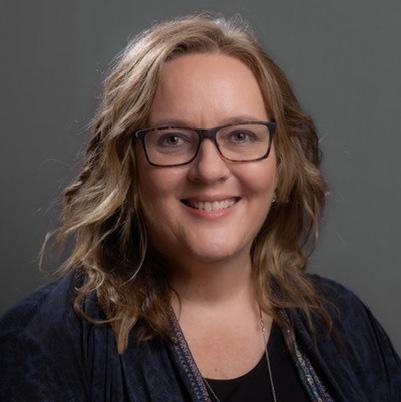
More about Phoebe: Tell Her Story by Nijay Gupta.
bus
By Paul Gallagher
One kind act from a bus driver this year has stuck in my mind, challenging me to make a change: I need to lower the floor for people.
The day and the trip were nothing special. I was standing at a stop near my home in Melbourne, and I could see the '670' approaching.
Catching a bus is always tricky because I have MS (multiple sclerosis). It affects my brain and spine, limiting mobility and disrupting other functions.
I was using a walking stick, but the driver could already tell as he neared the stop that I would need extra help to get on.
Pulling up directly in front of me, the doors began opening. As I edged forward, he lowered the front of the bus to almost ground level so I could step on easily. It’s that thing buses do that makes them easier to enter and exit, especially helpful for people like me. I thanked him and made my way to a seat.
The bus moved off, and I headed home.
Later, though, I remembered the moment he lowered the bus, and I felt a challenge. Sure, the driver was probably just doing his duty. But what, I asked, am I doing to lower the floor for someone else? In what ways am I making an effort to go another mile with someone? What am I doing in my community to open doors of time and investment for others?
I know it’s probably making too much from a small act of duty, but I think moments like those can remind us to get our eyes off our shoes and up at the eyes of others looking at their phones, lonely, disconnected, unhappy. MS, for example, is not a licence for me to give up being involved in others’ lives, caring more for the people I love and especially the people I think of less.
My bus driver did his duty, and I am grateful for it. Now, I need to do mine, more, even with this limp and list of barriers that add stops in my life.
The words of Jesus compel me: 'A new command I give you: Love one another. As I have loved you, so you must love one another. By this everyone will know that you are my disciples, if you love one another.' (John 13:34-35 ESV)
Paul Gallagher is an author, pastor and Masters student of Alphacrucis, and former editor of Evangel/Now! magazine. He manages life and ministry with a progressive form of MS (multiple sclerosis). More info here


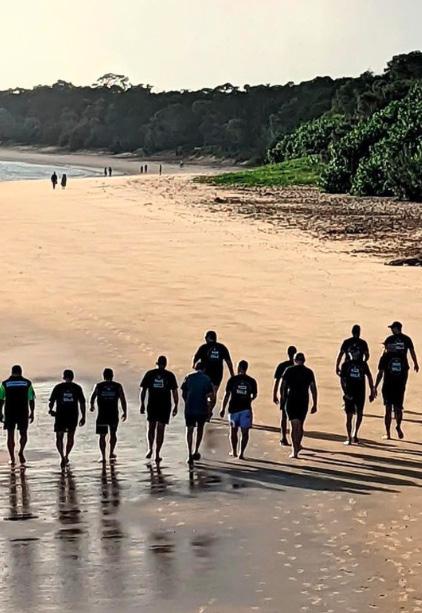
By Paul Bartlett
I am a big believer in seasons and shifts that God does in the Kingdom over generations. One of those shifts is what I call the 'Hero Shift'.
For many decades the heroes have intentionally, or even unintentionally, been focused squarely on the platform on Sunday. Often our heroes have been the worship leader or preacher, and whilst they are still vitally important, I believe we are in a different season.
For decades we operated in the 'law of the few' where a handful of standout leaders made the largest impact. Today it’s different, we live in the 'law of the many' where God is using everyday Christians to make a difference in our world like never before.
Consider that the unsung unnoticed heroes aren’t just sitting in your church, they are outside in your community as well.
One of the ways to build trust and credibility in your community is to celebrate people who don’t go to church but are doing things that help others.
The world is used to hearing us shout about ourselves, but when a church shouts about the heroes in their community, they begin to notice your church for different reasons.
Who in your community is doing something great?
How could you celebrate and thank them?
A couple of years ago I met a local hero (although he didn’t think he was one).
Mark, who is in the health industry noticed men often don’t open up in clinical environments about their struggles, so he started The Man Walk. It went from a handful of men grabbing a coffee and walking and talking about life to over 150 groups in Australia and New Zealand. What a hero! We celebrated him on our church socials.
A hero is someone who gives their time, energy and even finances to help others experience life in greater ways. Not only are our churches rich with these kind of people, you will find them just outside the walls of your church as well if you take the time to look.
Why don’t you make the Hero Shift today and go looking for Heroes in your community, they’re everywhere!
Paul Bartlett is the national leader of ACC Community Engagement..



By Allyson Parker
A shepherd not only cares for and leads the flock but also seeks to protect them from harm.
In all our churches, there are individuals who, for various reasons, may feel disconnected and isolated, remaining ‘in the shadows’ of our communities.
From a safer churches perspective, this creates two opposing risks:
1. The wolf among the sheep
2. Vulnerable lambs
Consider the wolf among the sheep. Foundational to all safe ministry are the principles of transparency and accountability. The wolf among the sheep will avoid these processes as much as possible. They may appear ‘connected’ and are often highly social and charismatic, grooming not only their intended victim but also those close to them, creating a false sense of safety and trust. However, a closer examination reveals a disregard for protocols and procedures. They shy away from accountable discipleship, despite seeming Biblically knowledgeable. They may become offended if their interactions are questioned and often move on when faced with required accountability and transparency.

Wolves may also seek isolation, avoiding meaningful interpersonal connections while attempting to engage in the online space.
Conversely, those who are vulnerable to abuse may be experiencing physical, emotional, spiritual, financial, or intellectual isolation within our communities.
Physical Isolation: Inability to attend community events or the need for personal care can lead to missed pastoral support for individuals in abusive situations, or open the way for opportunity for harm presenting itself as the one willing to care. For example, a child or elderly person facing physical abuse, or someone in a domestic violence relationship who stays home to hide injuries, may be particularly at risk.
Emotional Isolation: Past trauma and rejection can make individuals easy targets for grooming and subsequent abuse, such as a young person estranged from a parent due to a relationship breakdown.
Spiritual, Financial, and Intellectual Isolation: Such disconnection leaves individuals vulnerable to spiritual abuse, bullying, and other harmful behaviours due to a lack of knowledge or resources.
PRACTICAL
1. Foster a Culture of Transparency and Accountability: Ensure this is present in all areas of ministry, including small group gatherings and online interactions, so patterns of concerning behaviour can be easily identified and addressed by the community.
2. Maintain Attendance Records: Where possible, track attendance and follow up with those who are missing. Strong pastoral care and a culture of discipleship are effective in both preventing and responding to risks.
3. Communicate Commitment to Safe Church: Clearly express your dedication to safety and provide multiple channels for reporting concerns.
4. Trust the Holy Spirit's Promptings: While maintaining a positive view of individuals, remain attentive to the Holy Spirit's guidance. Allyson Parker is the national director of ACC Safer Churches.
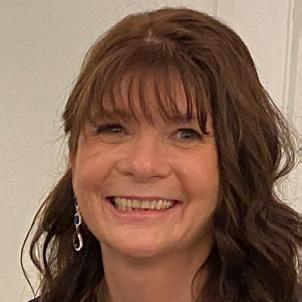

By Dave & Ailen Edgar
Many churches have high schoolers sitting in their Sunday services who are not engaged in the life of the church. Even on a Friday night, it can be easy for many teens to fly under the radar and miss the potential of what God wants to do, simply because they were not engaged by leaders. This is why it’s imperative Youth pastors and leaders are intentional to grow in ‘seeing’ the unseen teens.
Below are six tips to draw out the gold for high schoolers who exist in the shadows
1: CALL THE PARENTS.
If a high schooler isn’t attending the youth ministry, a call to their parent to invite their child could be the key in seeing the young person attend. If they already come along, most parents love to have a check-in call where a youth leader enquires as to how they can best support the young person.
2. 'I’LL MEET YOU OUT THE FRONT'
If a high schooler seems nervous about attending the youth service, letting them know ahead of time that you (as the leader) will meet them in the car park when they get dropped off and will walk into the service together can give them a lot of confidence. Make sure you’re outside waiting.
3. STRATEGIC HANG OUT TIME
During the pre-service hang out time, have some smaller stations set up where you as a leader could connect with 2-3 young people. Lollies and Uno around a table or a tennis ball and tape for 4-square.
4. ENGAGE IN SMALLER DISCIPLESHIP MOMENTS.
Try planning a smaller midweek hang out with 2-3 quieter young people. Plan ahead with parents to go grab donuts or hit up a skate park. Create curated moments with the sole purpose of engaging specific young people.
5: STEP INTO SERVING
Create opportunities for the more reserved teens to step into serving. When ready, suggest serving in the kiosk or asking if they can organise a snack or a playlist for small group.
6: BUILD A TEAM THAT REPRESENTS THE DEMOGRAPHIC.
Some of the greatest pastoral leaders are the quiet, unassuming leaders who are attentive enough to break into the world of a young person who exists in the shadows. Is your team stacked with big personalities or is there a healthy breadth of personalities, both loud and quiet?
Dave & Ailen Edgar are the State directors of Youth Alive Victoria.


By Jen Gurry
When I arrived at a Christian radio station to be interviewed on unplanned pregnancies, I was in for two surprises. The first was that the radio host was a recent client seeking an abortion. The second was when this host so bravely shared her story on air. She a pastor’s wife, finally established in her radio career after having six children, discovering the shock of being pregnant with her seventh child.
While this story may surprise you, one of the most common age groups seeking abortions are women aged between 25-38, many with established families and careers. At Diamond Women, 10% of women seeking abortions identify as Christian.
Some of the top reasons women seek abortions include cost of living, mental health, established families, being single or in an abusive relationship. No matter the reason, one feeling is shared by all: hopelessness.
In an article for Focus on the Family, Amy Ford so eloquently expressed: 'I’ve heard it said that the Church is the hope of the world. I’ve also noticed that women facing crisis pregnancies all seem to have one feeling in common: hopelessness. It is this very feeling that propels abortion rates.'
There is a significant role the Church plays in helping both men and women with unplanned pregnancies – and it begins with hope-fuelled, shame-free communities that will embrace women and men on their unplanned parenthood journey.
PRACTICAL WAYS YOUR CHURCH CAN HELP WOMEN (AND MEN) WITH UNPLANNED PREGNANCIES
1. OPEN YOUR BUILDING
One of the greatest needs of women with unplanned pregnancies is a healthy, safe community to belong to. Mothers’ Groups and Play Groups provide stability and rich relationships for vulnerable women in an otherwiseisolated time of their life. From hosting your own Mothers’ groups to providing space for specialist programs, such as Mum2Mum*, opening your building to others fosters real community and opens opportunities for new families to potentially explore the Christian faith.
2. PARTNER WITH COMMUNITY AGENCIES
Across Australia there are many charities that assist women with unplanned pregnancies – everything from crisis accommodation through to Options Counselling and post-abortive trauma counselling. Establish relationships with these local agencies so that when the need arises, you have a great referral base for women (and men) with unplanned pregnancies.
3. INTENTIONALLY FOSTER A SHAME FREE, REDEMPTIVE ENVIRONMENT
Whilst this one may seem obvious, fostering a healthy culture of speaking well of people, embracing those in vulnerable situations with grace and discretion is imperative for a redemptive environment. How does your church handle gossip? Or talk of other people? From team meetings through to individual conversations, it is often the ‘off the cuff’ remarks on seemingly insignificant matters that shape how a vulnerable person perceives the Church.
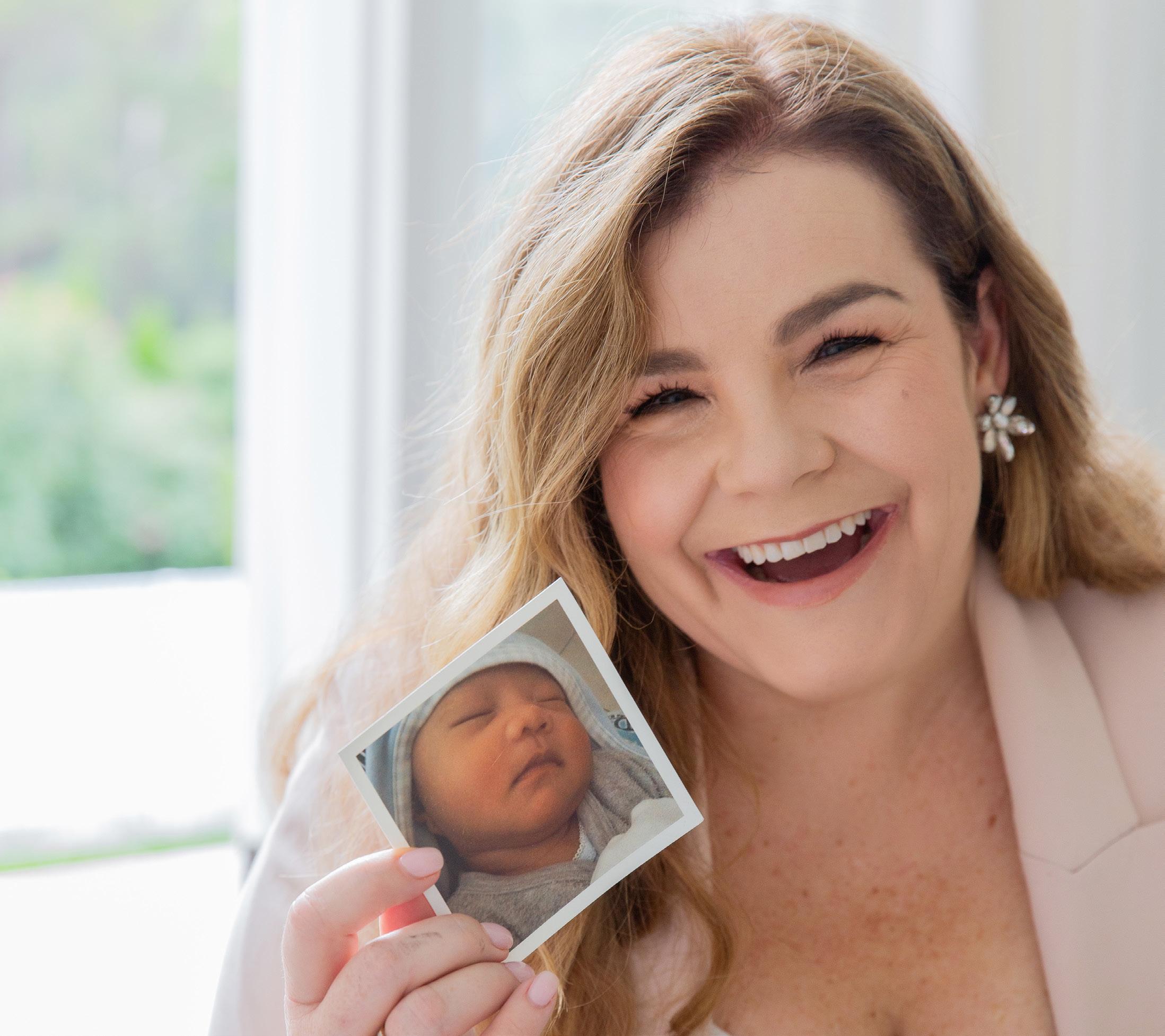
There is death and life in the power of the tongue – we often don’t translate this through to abortive-minded people, but our present words can impact someone’s future decision making. Let’s speak life and hope in every situation.
From navigating conversations of unplanned pregnancy to grief from a past abortion, provide your key team with the education and awareness they need to navigate this sensitive topic. Organisations such as Cherish Life and Diamond Women can provide your team with education, awareness and practical tools to support vulnerable men and women with unplanned pregnancies.
SCAN THIS QR CODE TO LISTEN TO THE RADIO INTERVIEW

Jen Gurry is the CEO and Founder of Diamond Women, an organisation that provides free-of-charge services to women with unplanned pregnancies. Services include Options Counselling, Post-Abortive Trauma Counselling, perinatal mental health support, material assistance and parenting programs. Counselling services are available Australia-wide via Telehealth for both men and women.
More info: diamondwomen.com.au
For ways that your church can partner with Diamond Women, email vicky@diamondwomen.com.au
*Mum2Mum is a specialist program for women with unplanned pregnancies that operates as a Mothers’ Group with trained facilitators and volunteers.

By Andy Kirk
Recent data shows that around 1 in 6 Australians (18%) have a disability, many of whom face barriers to inclusion in church life. Offering special needs ministries can transform the church into a more welcoming space, ensuring that individuals with disabilities and their families feel supported. These programs not only promote community integration but also serve as a vital demonstration of Christ’s love, compassion, and inclusive message.
Special needs in our Kids ministries are vital for supporting families in our church communities. These ministries, such as the Champions Club, provide tailored spiritual, emotional, physical, and creative support to individuals with disabilities. By offering programs that engage sensory, creative, and spiritual development, churches create spaces where all people can connect with God and grow in faith.
Moreover, with the increasing awareness of neurodiversity and varying developmental needs in society, churches have a powerful opportunity to lead in creating environments where every person is valued. Special needs ministries meet a profound societal and spiritual need, helping families find belonging and providing everyone the chance to grow in their relationship with God.
1. Raise Awareness with the Whole Team
Special needs ministry is not just the responsibility of the kids’ ministry; it should involve the entire church. Start by educating and equipping your whole team—pastors, volunteers, greeters, and even worship leaders—on the importance of embracing and supporting individuals with special needs. Provide training on how to interact respectfully, create an inclusive environment, and demonstrate the love of Christ to all, regardless of ability. This can help foster a welcoming culture where everyone feels valued and included.
2. Offer Practical Resources
You don’t need a full sensory room to make a difference. Simple items like fidget spinners, cue cards, or noise-canceling headphones can go a long way in helping children with sensory processing challenges feel more comfortable during services. You could create a small resource kit with these items for families, allowing them to use what works best for their child. These tools not only provide practical support but also signal that the church recognizes and responds to the needs of every individual.
3. Create a Designated Space
While setting up a full-scale Champions Club might not be feasible immediately, offering a designated space, even if it’s small, can make a huge impact. This could be a quiet room where individuals can retreat if they feel overwhelmed, or simply a section of the worship area that is more sensory-friendly. A space like this shows families that their needs are considered and catered for, creating a sense of belonging and ensuring that they feel supported during church activities.
For more details on Champions Club: https://championsclub.org
Andy Kirk is the national director of ACC Kids. acckids.org.au



One in six women and one in sixteen men have experienced violence by an intimate partner.
By Jacqueline Grey
Family and domestic violence (DV) is a real problem in our society. There is a need for our churches to address the issue openly. We can often think domestic violence only happens 'out there' in the community. However, recent studies remind us it is also occurring within church families.
The Anglican Family Violence research indicates the rates of domestic violence in the church might be higher than the community average. Shame can cause victims of DV in our churches to keep it hidden and in the dark, which is why we need to bring DV into the light. Marriages and families are precious to God. Marriage is intended as a loving covenant in which women and men can flourish. Violence and abuse undermine God’s intention for marriage. Yet, one in six women, and one in 16 men have experienced violence by an intimate partner. There is generally no single cause for DV but a range of factors. Unfortunately, our theology can contribute to this if our message undermines the principle that women fully share the dignity of being made in the image of God.
Listen to and support victims. There are various training courses available to help pastors know how to respond when faced with incidents, or suspected incidents, of DV such as Lifeline’s free DV-alert Training. We recommend all churches have on hand a list of appropriate services for referral for victims of family and domestic violence to ensure they receive effective support. Many of our churches already run services assisting victims and survivors with practical needs and counselling support. Prevention. How can we be involved in helping prevent family and domestic abuse. Again, some churches already run programs, such as addressing anger management and other underlying issues. The Church can also help in prevention.
Here are some simple things we can do to engage men and boys in the prevention of family and domestic violence:
• Spotlighting positive role models of husbands and fathers who demonstrate healthy masculinity and respect towards the women in their lives.
• Providing safe spaces for men to share their feelings with one another, including verbalizing their stresses and challenges. Being open about mental health can be a significant factor in preventing DV.
• De-bunking the myth of self-sufficiency. You don’t need to be strong and tough all the time to prove your value. We have and need a Saviour.
• Ask your church and community: What pressures or expectations do you think men and boys face? Then begin to help address these pressures through sermons, testimonies, and other communication strategies.
• Creating a culture where values such as compassion and kindness are championed.
By bringing DV into the light, we can help bring transformation to our churches and communities, and thereby reflect the love, faith and hope of Jesus.
Rev Dr Jacqueline Grey is an ACC Pastor and Professor of Biblical Studies at Alphacrucis University College.
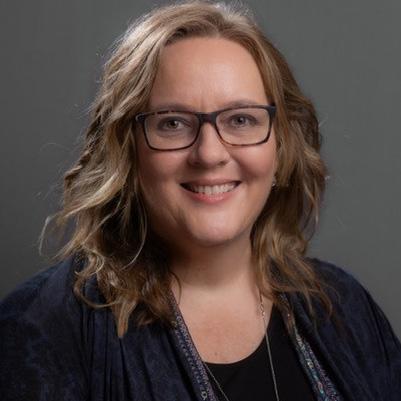
By Ralph Estherby
How do you measure the strength of your church?
It is often easy to fall into the pattern of judging the strength of your Church by the standard dashboard measurements of numbers in attendance, visitor ratios, giving trends, number of ‘responses’ and, how many small groups meet in a given week.
Whilst these trends are all good indicators of life and growth, what if Church strength is more than just what is seen on the platform and highlighted by the spotlights?
What if there is strength that is hidden in the shadows, often underestimated and often undervalued? What if we are missing the opportunity to appreciate and celebrate the impact that the ‘shadow’ ministries are having?
In Paul’s letter to Titus, he challenged him to engage in an activity that would assure fruitfulness and impact, interestingly it was not focused on preaching or acts of evangelism... 'And let our people also learn to maintain good works, to meet urgent needs, that they may not be unfruitful.' (Titus 3:14)
In almost every church in our movement we have Chaplains working in the shadows. They are ministering outside of the church, in every sector of community, and are daily stepping into the dark spaces of grief & loss, trauma & heartache, and confusion & pain. It is often hard to measure what they achieve; it doesn’t look like normal church, but we should never underestimate the power which shines brightly in the midst of darkness.
The superpower of the Chaplain is that they get to go where the Church is not allowed, they fulfill the challenge
which Paul gave Titus in that they maintain good works of love, acceptance and support for all. They are there for the urgent and for the critical. They certainly see some pretty amazing fruit. I believe that Churches have a potential to become even more fruitful by strategizing to raise up Chaplains who can infiltrate the shadows of their community and make a lasting impact.
Can I encourage you to draw from the strength that is more than likely hiding in the shadows of your church? Those trained chaplains have some incredible skills and amazing capacities that are often not utilised by pastors and leaders.
Can I also encourage you to draw from the benefit of our 1800Chaplain line which literally has Chaplains on call (waiting in the shadows) for you and your community every single day of the year.
How is the strength of your church? Is it time to explore the shadows?
Ralph Estherby is the national director of Chaplaincy Australia.
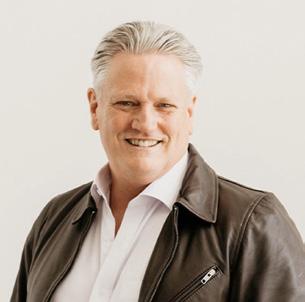
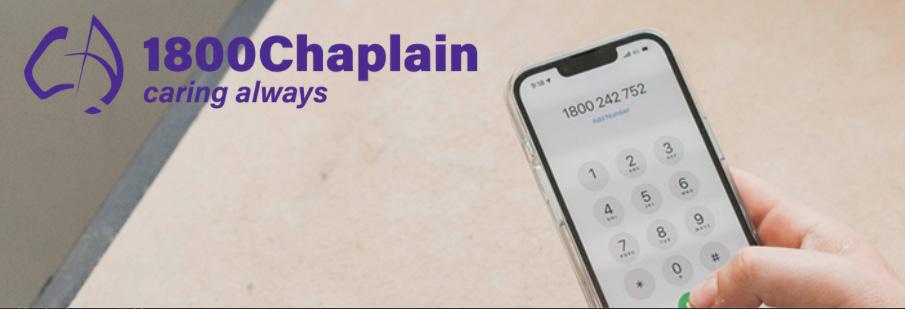
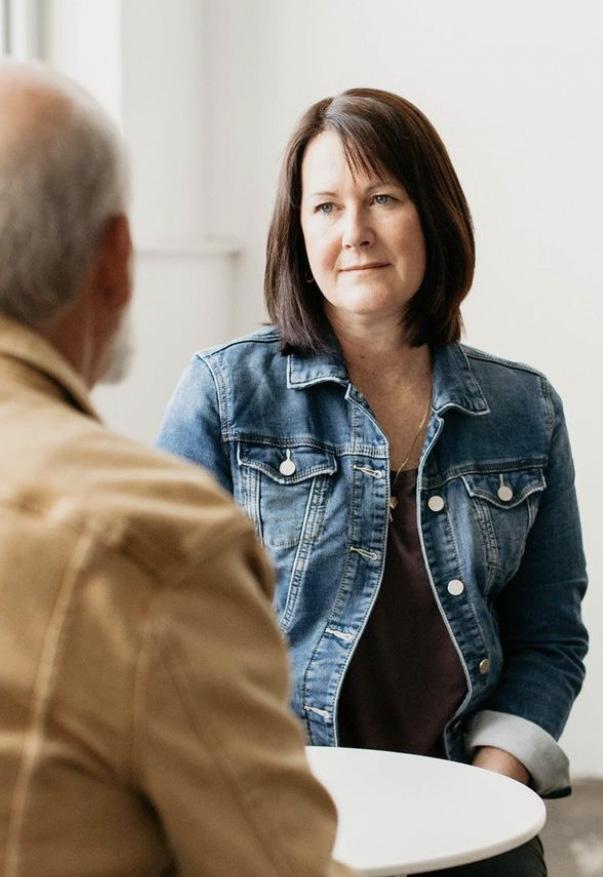
By Keith Harris
Mary’s story began on a bright spring day in 2004. Soon after her birth, the family was made aware of some issues and specialists were called to help in the first days of her life. Due to the dedication and love of her parents, family, medical specialists, support people, and carers, Mary grew up into a lovely young girl—a miracle in anyone’s terms.
Mary does not speak; she never has.
Mary does not feed herself; she never has.
Mary does not run and jump like other girls; she never has.
Mary does not draw or write; she never has.
Yet Mary is a bubbly, happy person, and her cheeky nature can sometimes be trying. Despite her many disabilities, late-night emergencies, and days in the hospital, Mary enjoys life. It is a life different from most people, but it is full of faith, love, joy, and hope.

Music is Mary’s Language
Mary is severely disabled to the point where communication with those who live in the neurotypical world on the other side of her fence is limited to groans, hand movements, and body gestures. There are no discernible cognitive or illocutionary vocal responses to words spoken to her or written down for her to read.
While sharing time and coffee with her stay-at-home dad, what occurred was quite astounding. It largely led to the writing of my original academic paper, Faith in the Shadows, in 2012.
While looking for songs on my mobile phone, Mary, who was close by, began to hear some music. As the songs came and went, we noticed a marked change in Mary’s mood and personality (persona) from her different responses to music that we would term Christian traditional 'church' music and secular pop culture music.
Her parents mentioned that whenever they played their classic Christian 'church' music in her hearing, Mary would become calm and relaxed. The change in her persona was noticeable to her family.
Her responses to different genres of music can be put in the anecdotal basket and dismissed as conjecture; however, a similar case of music and spiritual responses presents itself in the Bible .
Whenever the ‘harmful spirit from God’ came upon Saul, David would take his harp and play. Then relief would come to Saul; he would feel better, and the evil spirit would leave him. (1 Samuel 16:23)

Admittedly, this is quite a different situation from that of Mary. Still, the example of the ability of music to speak to the soul/spirit inner 'being' of King Saul is clearly articulated here, and the noticeable effect that churchbased music has on Mary.
With all the disruptive effects of chronic epilepsy, cognitive incapacities, and sentient IDD disabilities upon her, Mary speaks and expresses herself, primarily, and sometimes only, through her body language—attitude and her eyes.
For this young teenager (now a young woman) who will never achieve vocal illocution (speech) or normative assent (personal decisions), can we accept that her ears, eyes and body are her language, her window into this world, and the one through which she expresses her faith in God?
With Mary, there are no inhibitors in her life that 'separate' her from God, from faith and the experience of that faith and her life in Him in a real and tangible manner.
No external influences of life, of human knowledge and experiences from the neurotypical side of life, could cloud the issues of her faith in the 'Shadow World'. Here, on this earth, Mary experiences 'true' faith and joy in God every day of her life. Although she has never spoken an intelligible, audible word in her life. I am profoundly moved and confident that Mary knows and experiences God, by faith, in her spirit/soul being in a spiritual manner that tells us all about God’s love for her.
This is a considerable challenge for neurotypicals who rely so much on externals. I feel lost for words to describe what I discovered on this journey: that this
young girl-woman, totally compromised in normative communications, has a resilient and vibrant spiritual life with God by faith. This objective reality came through me learning her unique 'language' and engaging with her and her parents in talking about faith, disability, grace, and God.
Through Mary, I discovered that faith has never been an issue of what we think or know about God; it has always been what God knows of us. With all our neurotypical cerebral powers in place—more or less—it is humbling to know, in the sense of mindfulness, that faith is essentially a spiritual issue between God and us.
As the book’s motto says, 'Disabilities may impair expression, but never Faith'. A concluding statement pulls our discussion together and places a challenge before us, whichever side of the fence we live on.
Faith in God has, is, and always will be a matter of Spirit. Any other definition of faith is flawed on both sides of the fence, for it dismisses God, who is Spirit, as the prime cause and facilitator of faith in those who believe, whatever 'world' they live in, and marginalises the disabled whom we may perceive to be incapable of facilitating that faith.
© 2024 Extract from Chapter 10 of Faith In The Shadows: The Other Side of the Fence by Keith Harris is published with permission.
Keith Harris is the author of Faith in the Shadows www.KeithHarrisToday.com

There are many ways to cater to a growing church community, from purchasing more land to building a mezzanine. One of the most popular ways is to introduce a church cafe. We spoke with successful church café managers across Australia, and here are two of the 10 top suggestions to consider if a church café is something you are exploring:
1. Clearly Define How the Café Will Operate
One café manager advises, 'Sometimes the lines blur between work in the café and ministering to patrons. Both are important, but they have their place.' The key is to understand that the church café is not a church, though it can facilitate powerful moments of ministry. The church café has a different financial model, way of operating, and set of ‘consumer’ expectations.
While the vision may be the same, be clear about different roles and expectations, especially with a mix of paid staff and volunteers. Defining this from the get-go helps in other areas of planning and management.
2. Know the Needs of your Community
Understanding who you’re catering to is essential. Is your café frequented by families, students, or older community members? Tailor your menu, pricing, and environment to suit their needs. For example, offering kids' meals, highchair options, and changing tables in the bathroom can make a big difference if you serve mostly families. Free high-speed Wi-Fi, power sockets, and blinds to reduce screen glare are important factors to consider if you are serving students or working professionals.
David Unwin, Business Manager of the C3 Powerhouse Church Café, offers this practical advice to any church leader considering starting a café:
'Be patient and realistic about income expectations. The build-up of revenue can be slow at first. Keep refining your marketing until you find your ‘people’ who adopt your café as their regular spot for a coffee hit.'
To read the full article, click here.


THINKING OF INVESTING IN A CHURCH CAFÉ?
A church café is one of the many ways to extend your church's vision, and at ACS Financial, we want to provide you with the best insurance, lending, and investment solutions.
Following the ACC State Conferences, we have an exciting ACC State Conference special: 5.40%pa. for 24 Months for NEW investments of $100K or more. This special offer is only valid only until 31st December 2024. SCAN THE QR CODE TO DOWNLOAD THE SPECIAL RATES.

*Terms and conditions apply. Interest payable at maturity. Early redemption may result in a lower rate.
James Aiton, Nadia Clark, Adam Dodds, Jacqui Grey, Ken Lee, Jess Leonardo, Roy Marcellus, Kristy Mills, James Murray, Van Shore, Sean Stanton, Ben Teefy, Adam White, Shane Willard, Amanda Winchester
Sign up for Disciple Course

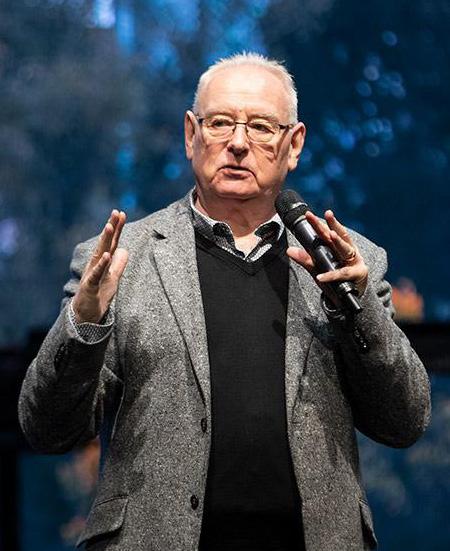
11 - 13 November 2024
Study at Sydney Campus or Online
Seminar only and for credit options available. Register
Our Master of Leadership program has been designed to help you transform your leadership and increase your team’s focus and effectiveness.
This practical program for senior leaders includes extensive study support and a dynamic leader cohort to help you succeed in your studies and your leadership.
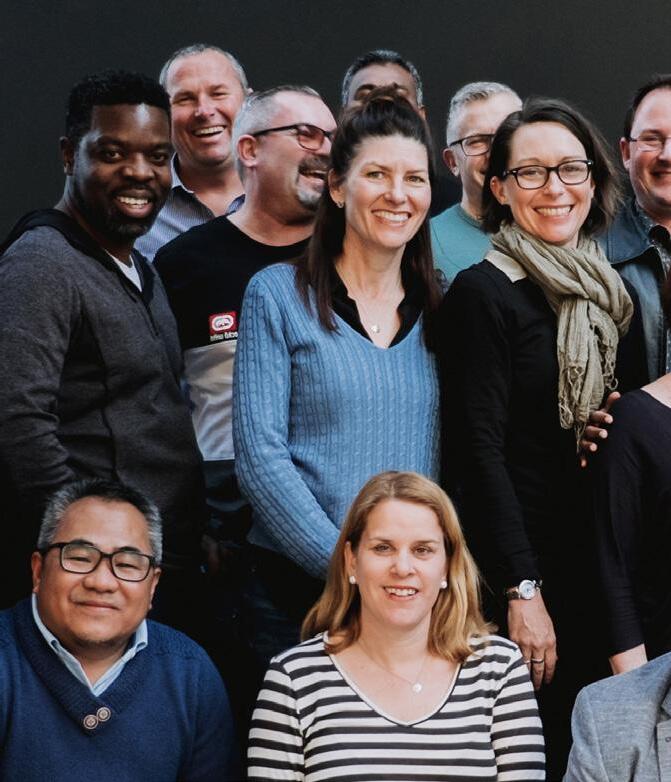

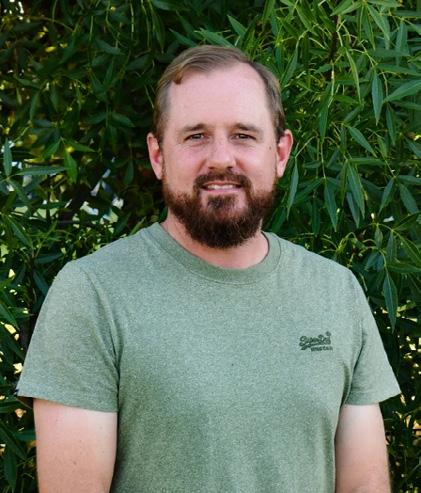
Caleb Dwyer Senior Pastor, Generocity Church, Bathurst, NSW
Local Church College
Are you interested in running a pop up college in your local church?
An LCC is a ‘Local Church College’ - in other words a ‘pop up college’ hosted in your church. An LCC is a vehicle for you or your church liaison to be involved in the training and equipping of your leaders in your local church context, while utilising world class content and teaching from AC.
Grow the potential and expand the impact of your people
“Studying Counselling at AC helps me better understand and lead the teams across our 8 campuses. It is also opening up new opportunities for ministry.”
Certificate, Diploma, Bachelor, Masters courses starting this November.
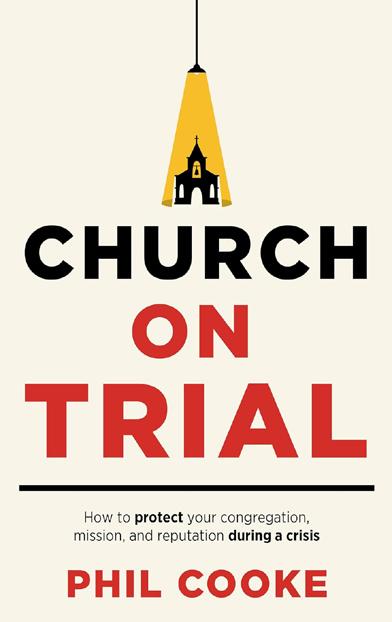
How to protect your congregation, mission, and reputation during a crisis by Phil Cooke
Church leaders face a unique challenge - navigating the upheaval of crises, ranging from unforeseen scandals to disruptive emergencies.
Church on Trial is an essential guide for maintaining integrity and preserving the good standing of your church in the face of a crisis. Learn to:
• Maintain and earn congregational trust and unity,
• Safeguard your church's reputation preemptively and proactively before it crashes,
• Implement best practices for crisis prevention and recovery,
• Build relationships and collaborate with trusted legal advisors, and
• Gracefully handle negative media attention and publicity.
Crises do not have to break your church. Rather, your church can be built to weather the storms they bring.

The Other Side of the Fence by
Keith Harris
'Faith in the Shadows: The Other Side of the Fence' says we live in a world where a person's 'value' is often assessed through external attributes such as image, wealth, position, or popularity.
This book explores a person's real 'value' in the context of faith in Christ. Written over 12 years, Faith in the Shadows brings clarity, joy, and hope where disability may seem to cloud or hide the reality of faith in Christ in the life of a disabled person.
Two children's books accompany Faith in the Shadows that are expected to be released in the first quarter of 2025.
More info: www.KeithHarrisToday.com
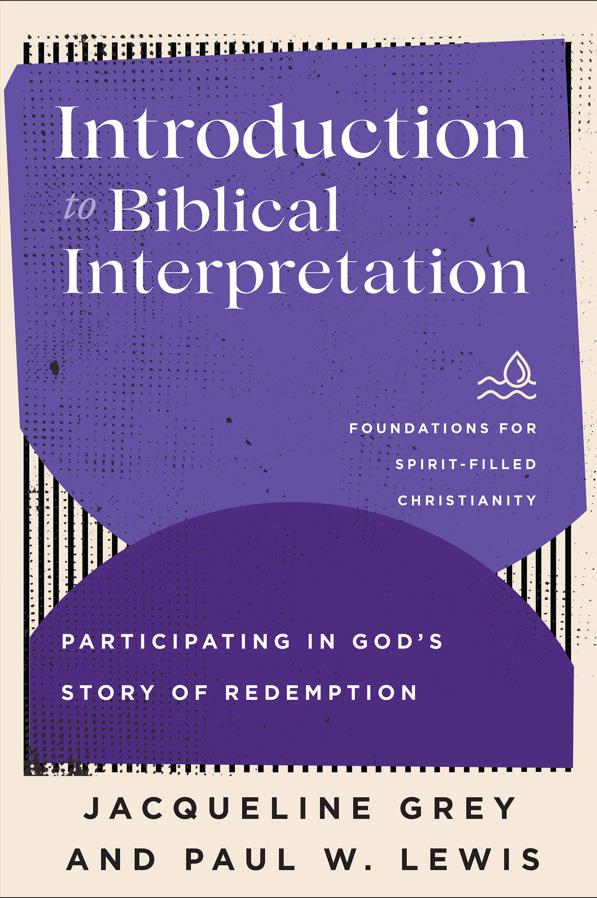
INTRODUCTION TO BIBLICAL INTERPRETATION Participating in God's Story of Redemption
by Jacqueline Grey & Paul W. Lewis
This Introduction to Biblical Interpretation provides a solid foundation to help readers understand and apply the Bible today.
The authors (Jacqueline Grey & Paul W. Lewis) emphasise the Holy Spirit’s role in the production, interpretation, and application of the Bible as a communication of the triune God. They also explore the Bible’s genres and historical contexts through the lens of God’s redemptive story.
Principles and accessible guidelines are given to apply the Bible to our contexts today. Above all, the authors emphasise the transformative nature of reading Scripture.
This new release is part of the Foundations for Spirit-Filled Christianity Series.
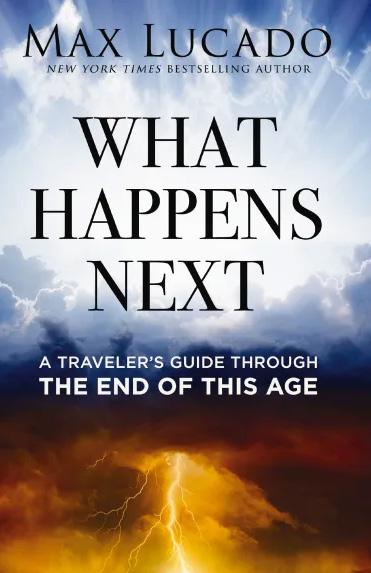
A Traveller's Guide to The End of this Age
by Max Lucado
Max Lucado addresses the topic of end-times in the hopeful, accessible style that readers have come to expect. In What Happens Next, Lucado follows the time-line of milestone events offering an optimistic and wellresearched guide to what the Bible says about such a longdebated topic.
The book aims to point people back to the key truths and provide a reassuring overview of what the Bible has to say on a topic that often creates confusion and anxiety.
Exploring topics such as Paradise, the rapture, Armageddon and other events as foretold in the Bible, Lucado says his main goal is to help readers face the future with faith, not fear: Understanding the future empowers us to face the present
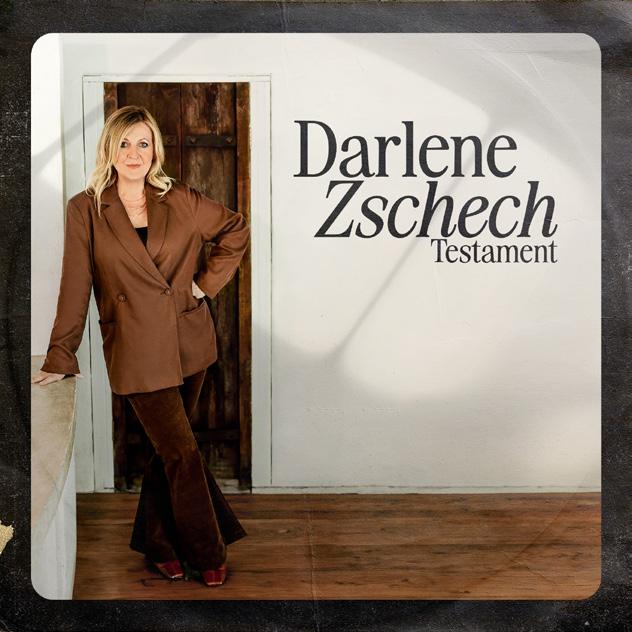
Darlene
Zschech
Darlene Zschech's 2024 release of a special album titled Testament, celebrates 30 years since her breakthrough song, Shout to the Lord
After an introductory EP, the awaited full-length record of Testament includes 30 recordings of reimagined versions of beloved legacy songs, and others.
Darlene highlights the vibrance of the Church around the globe by collaborating with artists of various backgrounds and from a different generation, such as Mitch Wong, Michael W. Smith, Dustin Smith, and others.
In many ways, Testament is a full circle album of Darlene's life, fueled by her unwavering love for Jesus and his Church. The major 30-song album includes some of the pillars that have kept her anchored throughout her lasting ministry, as she described them as “songs that have deep meaning to my family; that have helped shape me and kept my focus heavenward.”
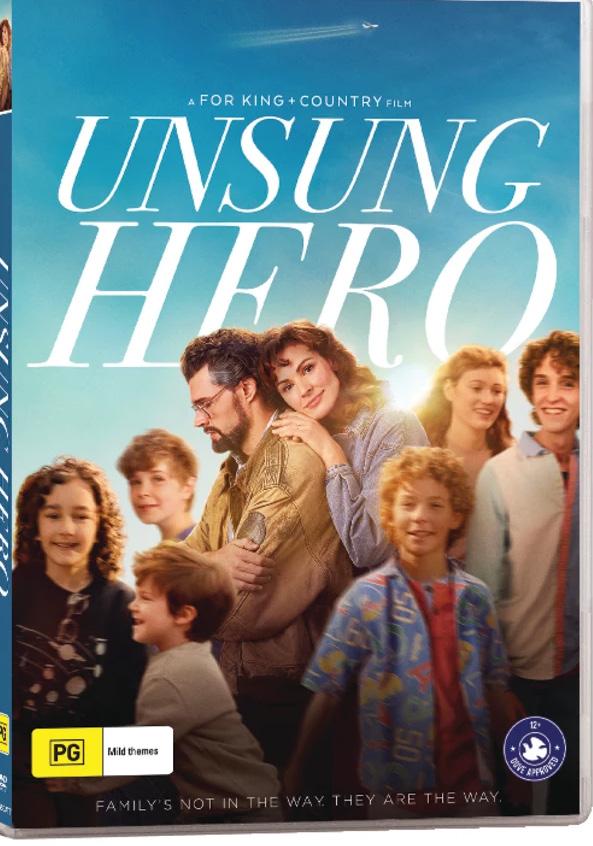
UNSUNG HERO
DVD 2024 Movie
Based on a remarkable true story, Unsung Hero follows David Smallbone as he moves his family from Down Under to the United States, searching for a brighter future after his successful music company collapses.
With nothing more than their seven children, suitcases, and their love of music, David (for KING + COUNTRY's Joel Smallbone) and his pregnant wife Helen (Daisy Betts) set out to rebuild their lives.
Helen’s faith stands against all odds and inspires her husband and children to hold onto theirs.
With their own dreams on hold, David and Helen begin to realise the musical prowess in their children, who would go on to become two of the most successful acts in inspirational music history: five-time GRAMMY Award®-winning artists for KING + COUNTRY and Rebecca St. James.

ACC EMAG #4 2024
Published by Australian Christian Churches. Editor: Daryl-Anne Le Roux editor@acc.org.au
Graphics & Media Assistant: Kieran Carlos
Proofreader: Elba Broadhead
Photography by:
p. 1 iStock
p. 4 Instagram
p. 6 Oasis Church
p. 8 Youth Alive Australia
p. 9 Youth Alive Australia
p. 10 Awakening Australia
p. 11 Awakening Australia
p. 12 ACCI
p. 14 Hope Centre Brenton Frame
p. 16 Pexels 3194519
p. 21 Unsplash / Ricardo Frantz
p. 23 Istock
p. 24 Unsplash / Olga Bast
p. 26 Unsplash / Wojciech Pacześ
p. 29 Pexels / David Gallie
p. 30 The Man Walk
p. 32 Unsplash / Ricardo Gazzin
p. 35 Unsplash / Cory Gazaille
p. 37 Diamond Women
p. 39 Pexels / Antoni Shkraba
p. 40 Pexels / Karolina Kaboompics
p. 42 Chaplaincy Australia
p. 44 Istock image
p. 46 Pexels / Afta Putta Gunawan
ACC EMAG is published four times a year. Visit www.acc.org.au/emag to read more editions.
ACC National PO Box 8093 Norwest NSW 2153
No part of this magazine may be reproduced without the written permission of the publisher. All rights reserved. ©2024 Australian Christian Churches.